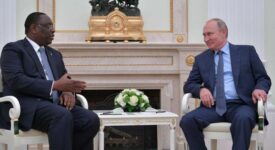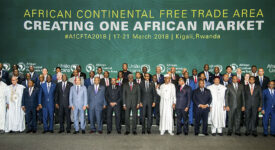The African Union (AU) attempts to create a structurally similar relationship among its own 55 member nations as the European Union has. “The goal is to realize the union of an integrated, prosperous and peaceful Africa driven by its own citizens,” said Khabele Matlosa, the AU’s director of political affairs. In 2013, African Union framed the main objectives of cooperation and socio-economic development that are designed to boost the transformation of the continent. The framework, labeled Agenda 2013, proposes various changes, from the idea of a continental passport to The Africa Continental Free Trade Agreement (AfCFTA).
The passport offers visa-free access to every member state, allowing citizens to move freely across the continent. Although most citizens find traveling around the region, whether for tourism or business purposes, extremely challenging, the AU passport is not yet ratified. “Until we get a passport like that of the EU, it will remain difficult to travel within Africa,” said Adedamola Idowu, the owner of a local travel agency. The AU passport is, however, now available exclusively to heads of state, top diplomats and persons of interest in Africa who highly value the concept.
The second objective regards the agreement allowing free access to markets within the region. The Africa Continental Free Trade Agreement (AfCFTA) aims to boost the African economy by creating a single market that removes trade barriers, which will allow Africa owned companies and businessmen to expand and enter new markets. This, in turn, widens their customer base, leading to new products and services. However, the idea currently faces various obstacles, among which the most significant is the multitude of regional and national trade interests and actors. Still, if the integration becomes possible, the AfCFTA agreement is expected to encourage socio-economic development, industrialization, and diversification of Africa.







